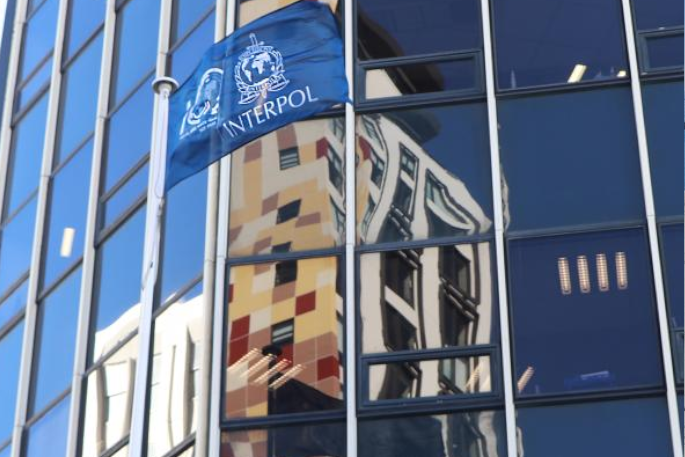The flag is flying for INTERPOL today as the world’s largest policing organisation celebrates a century of international police cooperation.
The International Criminal Police Commission was founded on 7 September 1923 in Vienna, Austria, at a convention that brought together representatives from 20 countries who agreed to collaborate to combat transnational crime.
“A centenary flag was hoisted this morning at Police National Headquarters - which houses INTERPOL Wellington - as the organisation's official flag was run up a Parliamentary flagpole at the other end of Molesworth Street,” says a police spokesperson.
“Today INTERPOL has 195 member countries. New Zealand joined on 13 June 1956 and hosts New Zealand’s National Central Bureau, also known as INTERPOL Wellington, at PNHQ.”
The 14-strong team includes both constabulary and non-constabulary positions. The NCB also coordinates and manages liaison with Police Liaison Officers; EUROPOL; New Zealand embassies/consulates overseas and foreign embassies in New Zealand; and the Ministry of Foreign Affairs and Trade.
“We facilitate all international investigations, coming into or going out of New Zealand," says Detective Inspector Paul Hamlyn, OC INTERPOL Wellington.
"Our team’s duties include incoming and outgoing extraditions; international missing persons; criminal investigations; mutual assistance; maintaining border alerts for Family Court Orders; cross-border child abductions; and helping manage New Zealand witnesses for overseas cases, and overseas witnesses for New Zealand cases.
"We're responsible for receiving deportees into New Zealand, which includes 501 deportees from Australia.
“INTERPOL membership gives New Zealand access to international secure encrypted communications, investigative tools and database resources to enable criminal investigations."
INTERPOL's focus on the Pacific lies in its Blue Pacific project, in partnership with Pacific Islands Chiefs of Police, and supported by New Zealand Police, Australian Federal Police, Fiji Police and the UK National Crime Agency. It aims to promote use of INTERPOL resources and enhance policing capability in the region.
INTERPOL Wellington has been involved in many significant cases over the years. It facilitated the arrest in Korea and extradition of a Korean-born New Zealander over the deaths of two children whose bodies were found in suitcases in Auckland last year.
During the pandemic, with borders closed and commercial flights cancelled, INTERPOL Wellington facilitated the extradition from Samoa of a man charged with sex offending in New Zealand. He is now serving a prison term.
In one of the best-known cases, INTERPOL Wellington coordinated the 2014 arrest in Brazil and extradition of fugitive child sex offender and murderer Phillip Smith, who was brought back to continue his life sentence.
To mark the centenary, the 2023 INTERPOL General Assembly in November will be hosted in Vienna, where it all began. Today is also the United Nations-designated International Day of Police Cooperation.
Commissioner Andrew Coster congratulated INTERPOL on the landmark anniversary.
“New Zealand Police has enjoyed a long association with INTERPOL and it has added great value to our work, complemented by our increasing presence in key countries through our liaison officer network," he says.
“In an ever-more global criminal environment, INTERPOL provides a critical connection to other jurisdictions and increases our reach, to keep our communities safe.
“There is little doubt that INTERPOL will only become more relevant in enabling us to stay ahead of crime that has international connections, including transnational organised crime. I thank all of those who have served as part of our INTERPOL post over the years.”



0 comments
Leave a Comment
You must be logged in to make a comment.